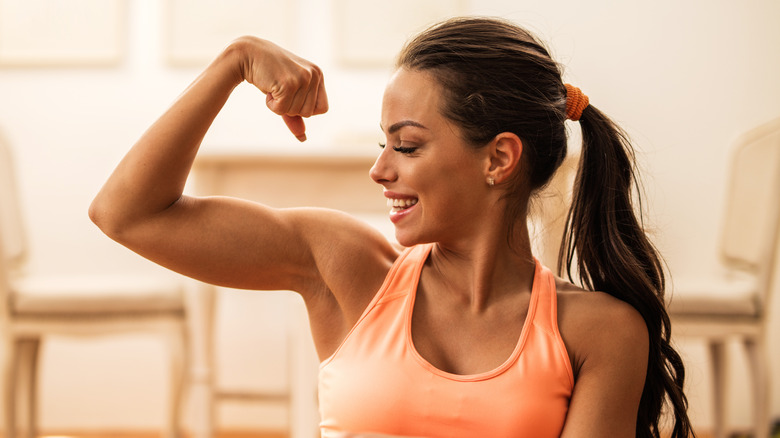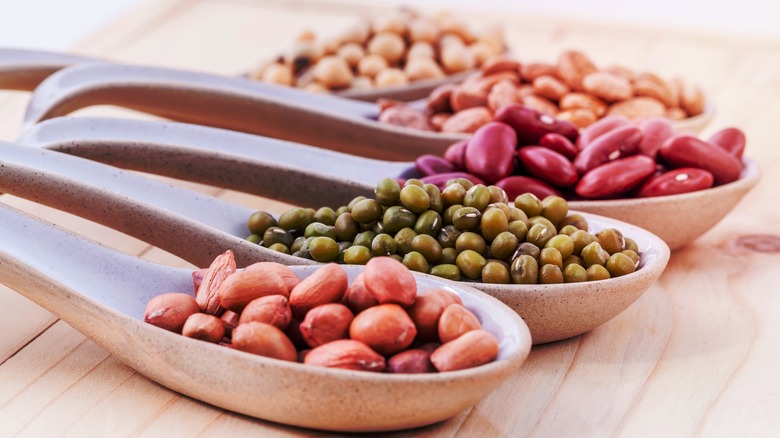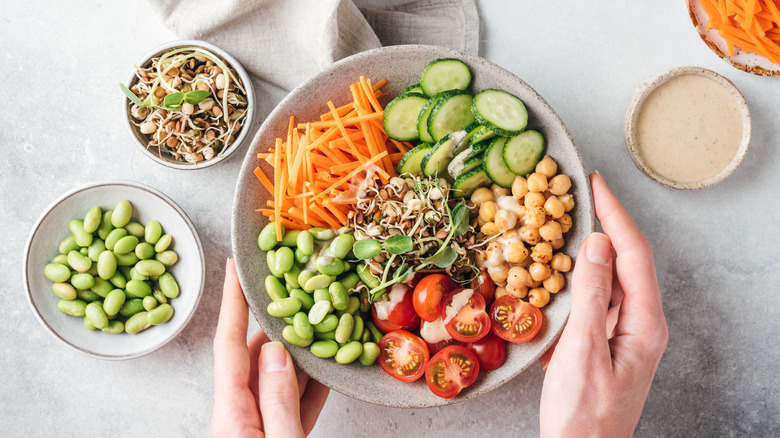This Plant-Based Protein Packs A Punch Of Iron
Even though a new diet plan seems to appear on TikTok every week, a plant-based diet has more than 20 years of research to back its health and weight loss benefits. The antioxidants in most plants can keep your immune system healthy and fight inflammation. The high fiber in many plant-based foods will fill up your belly and improve your gut health, and you'll maintain a healthy weight by avoiding animal-based foods that are typically high in calories and fat (per MD Anderson Cancer Center).
Yet a 2022 article in Progress in Cardiovascular Diseases says people who adopt a vegan diet have to plan their diets carefully. Strict veganism without careful planning can lead to deficiencies in certain B vitamins, calcium, omega-3 fatty acids, high-quality protein, and iron. This could lead to health risks such as muscle loss, anemia, and depression.
Your body needs iron to create the red blood cells that carry oxygen through your body, according to the American Red Cross. Although you can store some iron in your liver, you need to get your iron from food. Beans and legumes not only give you a good amount of protein, but you'll also get a solid amount of iron.
Nutrient-rich beans
The National Institutes of Health says that women over 50 and all adult men need at least 8 milligrams of iron a day. Women aged 19 to 50 need 18 milligrams, and pregnant women need 27 milligrams. A cup of lentils or a cup of white beans will both give you 6.6 milligrams of iron, while red kidney beans provide 5.2 milligrams.
These same beans are relatively low in calories — about 230 calories for a cup. Lentils will fill you up with 16 grams of fiber, and white beans and kidney beans have 11.3 grams and 13 grams, respectively. Let's not forget the protein in beans. A cup of beans can provide almost the same amount of protein as a scoop of protein powder.
Beans are great sources of potassium to keep your blood pressure under control. The American Heart Association suggests men get 3,400 milligrams of potassium and women get 2,600 milligrams a day. A cup of white beans can get you well on your way to reaching your potassium needs with 1,000 milligrams. Lentils and red kidney beans aren't far behind, with about 700 milligrams.
Iron absorption in the body
While beans give you plenty of iron, it's important to know how iron is absorbed in the body. Red meat and other animal food sources have heme iron, which your body absorbs more easily. Plant-based foods have non-heme iron that isn't absorbed as well (per WebMD). Beans also have phytates, which are antioxidants that are good for you but also limit iron absorption (per the Bean Institute). Vitamin C helps your body absorb the iron from beans because it doesn't allow the phytate to bond with the iron. Therefore, try adding foods rich in vitamin C to your serving of beans.
With that said, you'll want to skip a glass of milk if you're trying to get more iron in your diet. Calcium-rich foods block both heme and non-heme iron from being absorbed by your body. Polyphenols found in coffee, tea, and wine can also interfere with iron absorption (per Healthline).



